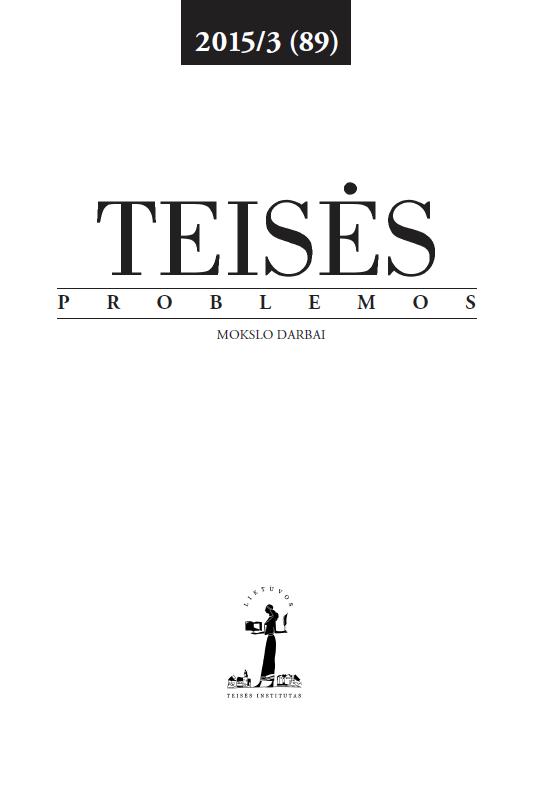Pagalbinio apvaisinimo teisinio reguliavimo Lietuvoje iniciatyvos: poreikis ir probleminiai aspektai
Legislative Initiatives on Assisted Reproduction in Lithuania: Need for a Law and Polemic Issues
Author(s): Eglė Kavoliūnaitė-RagauskienėSubject(s): Law, Constitution, Jurisprudence
Published by: Lietuvos teisės institutas
Summary/Abstract: Despite development in medical sciences, the need of legal system coherence (e.g. the Civil Code of the Republic of Lithuania contains a reference to a special Law on Assisted Repro-duction) and the importance to a great part of the society (in preliminary calculation this problem affects about 15 percent of population), Lithuania has not adopted a law on assisted reproduction yet. Currently, some issues relating the assisted reproduction procedure are regulated by the Order of the Minister of Health of 1999. Six draft laws on this issue with a wide range of proposals on the procedures, accessibility, conditions and provisions relating protection of embryo were prepared by working groups, Parliament committees, the Ministry of Health, etc., however, none of these were adopted due to failure to find a compromise on ethically sensitive issues. The Article analyses the mentioned legislative initiatives, explores the arguable and disputable issues, and seeks for possible solutions in the view of other states‘ legislation and regional case-law. The article consists of 6 parts. The first two parts are devoted to description of need for and scope of legislation as regards assisted reproduction, as well the presentation of the main features of the draft laws of the Republic of Lithuania on assisted reproduction. The third part discusses the different approaches towards legal status of embryo and relatedly the necessary level of protection of embryo. The fourth part, in turn, analyses the influence of medical science development on legal regulation of assisted reproduction (issues on donor¬ship of gametes and conservation of gametes and embryos are discussed in more detail). The last two parts approach particular provisions on accessibility to assisted reproduction procedures (i.e. the mandatory requirement of marriage or registered partnership and the mandatory provision of inability to have children), and the right of medical staff to refuse to participate in the procedure of assisted reproduction.
Journal: Teisės problemos
- Issue Year: 2015
- Issue No: 89 (3)
- Page Range: 59-82
- Page Count: 24
- Language: Lithuanian

